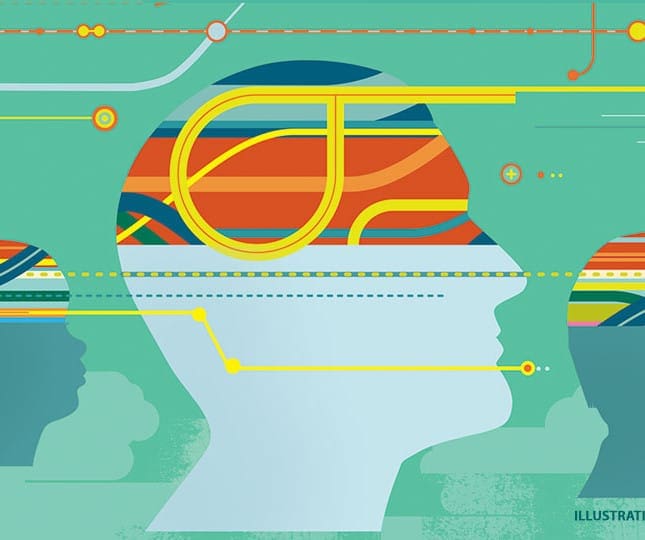Weighing in at approximately 3 pounds, the human brain is chock full of complexity, capability, and mystery. The capacity to learn is arguably the brain’s most useful function. From infancy through old age, our ability (or inability) to learn is influenced by countless biological, cultural, and sociological factors.
Krieger School professors and researchers are seeking to understand learning on all levels. From anthropological studies on how people master large and intricate libraries of knowledge, to sociological studies on factors that disrupt learning, to research on the memory levels among infants, the exploration of learning is uncovering new and surprising information.
Some of the “brain work” being done at the Krieger School is now being framed within a university-wide initiative launched in early May called the Science of Learning. This cross-disciplinary effort aims to understand learning in all its phases and manifestations: from the individual brain cell to our capacity as a species. A Science of Learning Institute has been formed to bring together the resources of Johns Hopkins to make new discoveries in our ability to learn.
We decided to dispatch our writers to find out what School of Arts and Sciences researchers are learning about learning. What follows is by no means a comprehensive inventory of all that is happening at the school in this area but rather a collection of insights and discoveries, peppered with provocative questions we posed to some of our experts.

